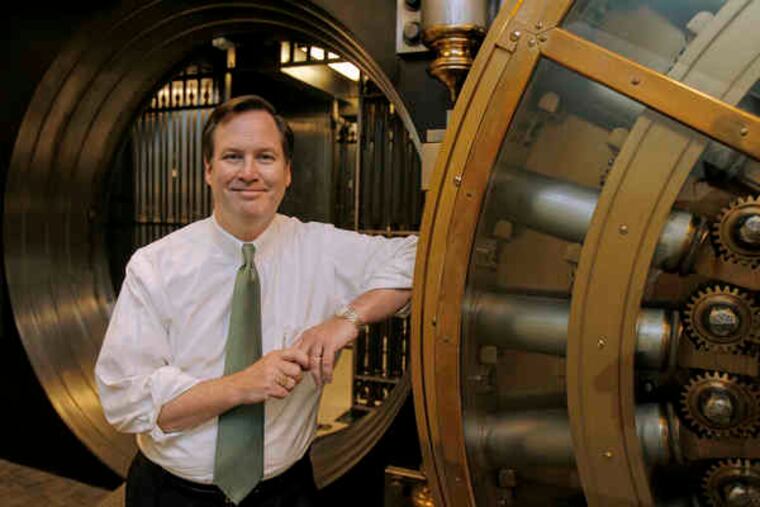PhillyDeals: Two financial companies stayed local - and succeeded
When stocks were high and rising, the people who ran most of Philadelphia's old financial companies grabbed the chance to sell, take the money, and run.

When stocks were high and rising, the people who ran most of Philadelphia's old financial companies grabbed the chance to sell, take the money, and run.
A few were left behind. Beneficial Mutual Bancorp Inc. (founded 1853) and stock brokerage Janney Montgomery Scott L.L.C. (1907, though it claims older roots) are owned by customers, not outside investors. That made them harder to sell.
But staying local and independent wasn't such a bad business plan. Both Beneficial and Janney have grown in the past year, at the expense of their big, out-of-town rivals.
They're doing it, in their very different businesses, without federal bailouts.
Beneficial's main asset - its loans to Philadelphia-area people and firms - has risen to $2.5 billion, a 17 percent jump, since last spring, according to Federal Deposit Insurance Corp. data.
The bank has been able to grow while becoming more selective: Its loan "turndown rate" rose to 85 percent of business-loan applicants, from 65 percent a year earlier, as customers brushed off or turned off by larger banks flooded Beneficial, said chief executive officer Gerard Cuddy.
Cuddy was hired two years ago from Commerce Bancorp Inc. to update Beneficial, which has been, by his description, an "It's a Wonderful Life, working-class savings-and-loan" where some of the 864 employees followed their parents into lifelong employment.
He presided over Beneficial's first big acquisition (Farmers & Mechanics Bank in Burlington County) and its first public share sale (for a minority stake) in 2007, as the economy started south.
He froze the pension plan, offering instead the new shares and 401(k) retirement accounts. He laid off managers, changing seven of his nine top reports.
"We're boring," said Cuddy from his office high in the Penn Mutual tower, with its unobstructed views of New Jersey and the Delaware. "Boring, and local, are the two things that are trading at a premium now."
He added, "We did no subprime loans. Credit cards, we won't touch them. We think they're destroying the economy. They're obsolete."
Out-of-town lenders hurt Philadelphia with no-money-down loans, in Cuddy's view. "You should put 30 percent down on a house."
He says he expects no miracles from Washington, and that means working harder. "I hate Sunday hours. But we're all counting change. We're planning to be here for a long time."
Expanding Janney
From his office over Market Street, Janney chief executive Timothy C. Scheve has boosted the broker sales force to 930 this year from 830 a year ago.
That's a switch. Janney retrenched in the mid-2000s as its national rivals grew by cooking up "structured products," based on high-yielding but doomed subprime loans, to investors chasing higher returns.
The market crash sent customers "looking for simpler solutions," said John "Jordie" Maine, who left Citigroup Inc. last year to head Janney's Capital Markets investment banking group. "That plays to our strength."
It's tough to build your business when markets are still weak. But Janney has taken that risk, backed by its owner, Penn Mutual Life Insurance Co.
"Mutual ownership has turned out to be a real competitive advantage for us over the public companies," said Scheve, lured from Legg Mason Inc. to Janney's top job two years ago. While publicly traded firms struggled to raise capital as share prices collapsed, "the mutuals have been fine. We don't need TARP."
"The business has been hard enough the last six months. But here, nobody has to look over their shoulder at what's going to happen to the parent company," said Jerry Lombard, the 26-year Janney veteran who heads the private-client group, which includes the brokers.
Janney has benefited from the embarrassment of Citi, Merrill Lynch & Co. Inc. and other big firms. "Individual investors don't like seeing their investments go down in value while their tax dollars are supporting the banks," Scheve said.
"I'm glad," said Lombard, "that we stuck to our plan."